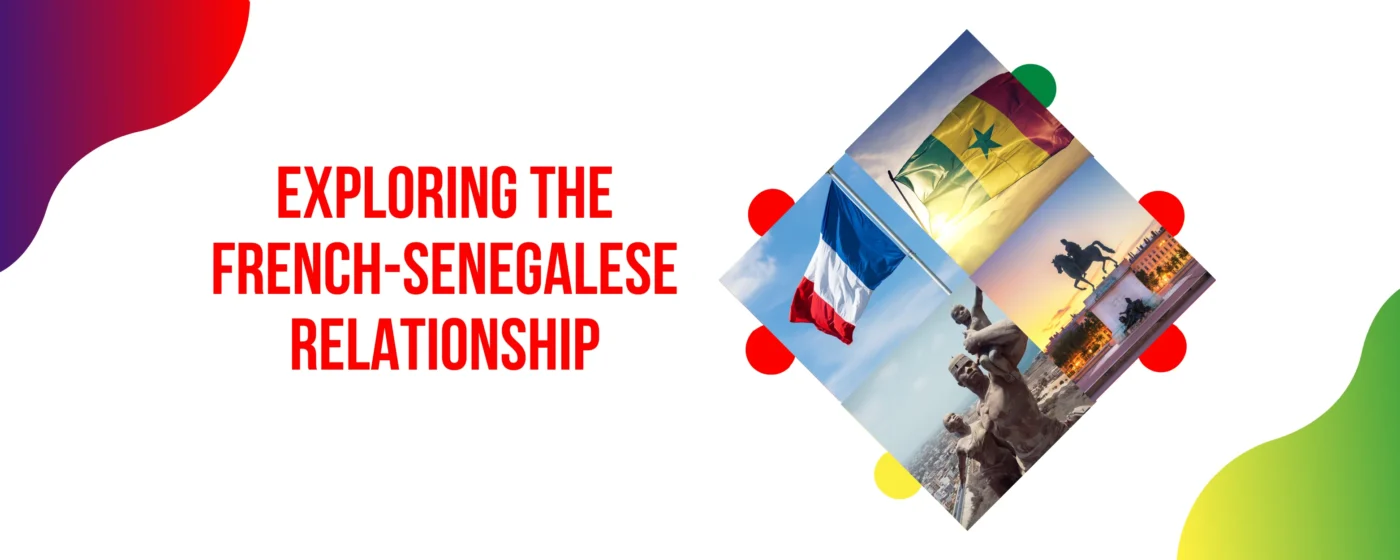Planning a trip to France or thinking of living there? Understanding French public holidays is essential for experiencing the country to the fullest. These special days offer a glimpse into French culture, traditions, and celebrations. From the vibrant Bastille Day to the festive Christmas season, each holiday has its unique charm. By knowing when they occur, you can plan your activities accordingly and avoid any unexpected surprises. Let’s dive into the world of French public holidays and discover what makes them so special!
Major Public Holidays in France (Jours Fériés France)
New Year’s Day (Jour de l’An) – January 1st
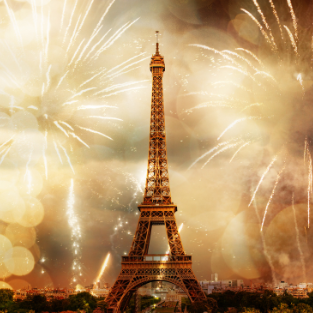

New Year’s Day, or Jour de l’An in French, is celebrated with great enthusiasm in France. Families and friends gather for special meals, often featuring traditional dishes like foie gras, oysters, and champagne. The day is also marked by fireworks displays and festive parades! One notable tradition is the custom of making New Year’s resolutions called bonnes résolutions in French. People often write down their goals for the coming year and share them with loved ones. Additionally, it’s customary to send New Year’s cards (cartes de vœux) to friends and family, expressing good wishes and blessings for the new year. Now doesn’t that sound like a fun tradition?
Easter Monday (Lundi de Pâques) – First Monday after Easter Sunday
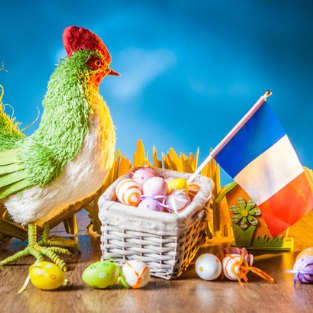

Easter Monday marks the end of Holy Week and the celebration of Christ’s resurrection. While Easter Sunday is primarily a religious observance, Easter Monday often involves family gatherings, picnics, and outdoor activities. In some regions of France, traditional customs and events take place on Easter Monday. For example, in the Alsace region, it’s customary to have a large Easter breakfast with family and friends, often including ham, eggs, and pancakes. In other regions, people may participate in Easter egg hunts or traditional folk dances. Easter Monday is a time for relaxation, enjoyment, and spending quality time with loved ones.
Labour Day (Fête du Travail) – May 1st
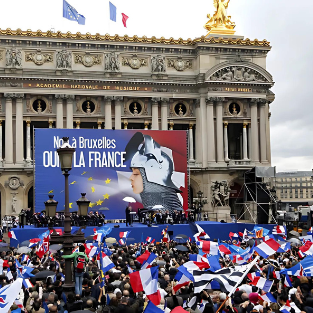

Labour Day, or Fête du Travail in French, is celebrated on May 1st in France and many other countries. It is a public holiday dedicated to honoring workers and their contributions to society. The holiday has its roots in the international labor movement and commemorates the Haymarket Riot of 1886 in Chicago, which led to the establishment of May 1st as a day for workers’ demonstrations and celebrations. In France, Labour Day is often marked by parades, rallies, and picnics. Trade unions and political parties organize events to raise awareness of workers’ rights and issues. It’s a day for people to come together and celebrate the achievements of the working class. Labour Day is also an opportunity for families and friends to enjoy a day off and relax.
Victory in Europe Day (Fête de la Victoire) – May 8th
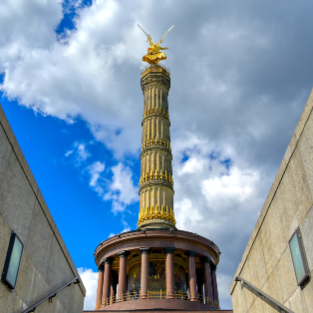

Victory in Europe Day, or Fête de la Victoire in French, commemorates the end of World War II in Europe. On May 8, 1945, Germany surrendered to the Allied forces, marking the end of Nazi occupation and the defeat of Hitler’s regime. In France, Victory in Europe Day is a significant national holiday. It is a solemn occasion for reflection and gratitude, honoring the soldiers who fought and died during the war and to remember the sacrifices made by civilians. It’s not just about sacrifice though, May 8th also celebrates the triumph of freedom and democracy! Typical celebrations include military parades, wreath-laying ceremonies at war memorials, and commemorative events. Moreover, schools and universities often organize educational programs about the war and its impact on France.
Bastille Day (La Fête Nationale) – July 14th
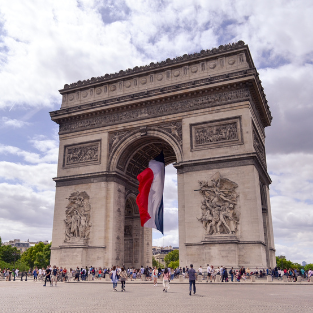

Bastille Day, or La Fête Nationale in French, is France’s most important national holiday, celebrated on July 14th. It commemorates the storming of the Bastille prison on July 14, 1789, a pivotal event in the French Revolution that marked the beginning of the end of absolute monarchy. Bastille Day is celebrated nationwide with a variety of events and festivities. The most iconic celebration takes place in Paris, where a military parade is held on the Champs-Élysées. The parade is followed by a spectacular fireworks display over the Eiffel Tower. Other popular Bastille Day activities include street parties, concerts, and fireworks displays in towns and cities across France.
All Saints’ Day (La Toussaint) – November 1st
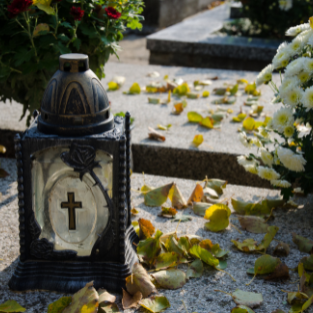

All Saints’ Day, or La Toussaint in French, is a Christian feast day celebrated on November 1st. It is a day to honor all the saints, both known and unknown, who have gone before us. The term “All Saints” refers to the collective body of saints, as opposed to individual saints who have their own feast days. In France, All Saints’ Day is a time for families to visit cemeteries and graves of loved ones. People often bring flowers and candles to decorate the graves and say prayers for the deceased. It is a tradition to light candles and pray for the souls of the departed, believing that they will be comforted by the prayers of the living.
Christmas Day (Noël) – December 25th
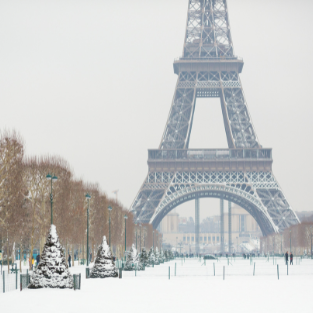

Christmas Day, or Noël in French, is a major holiday in France, celebrated on December 25th. It is a time for families and friends to gather, exchange gifts, and enjoy festive meals. The traditional Christmas meal in France often consists of a roast goose or turkey, accompanied by chestnut stuffing, potatoes, and vegetables. For dessert, families may enjoy a bûche de Noël, a Yule log-shaped cake decorated with chocolate and cream. Other famous Christmas traditions in France include decorating Christmas trees with ornaments and lights, singing Christmas carols, and attending midnight mass. Children may also receive gifts from Père Noël (Santa Claus), who is often depicted as a jolly man with a long white beard.
Regional Public Holidays in France (Jours Fériés Régionaux)
Alsace and Lorraine – Good Friday (Vendredi Saint)


Good Friday, or Vendredi Saint in French, is a significant religious holiday in Alsace and Lorraine, two regions in northeastern France. Good Friday, commemorating the crucifixion of Jesus Christ, is a day for reflection and prayer. In Alsace and Lorraine, Good Friday is often marked by traditional customs and practices. One such tradition is the “Christus Passion” – a dramatic reenactment of the Passion of Christ that takes place in various towns and villages. These performances are often accompanied by music and singing, and they are a popular event for both locals and visitors.
Corsica – Feast of St. Devota (Fête de la Sainte-Dévote)
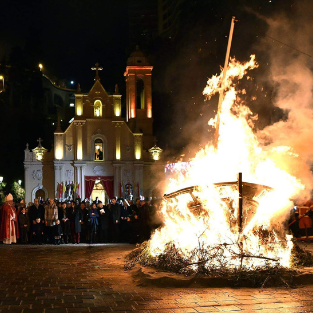

The Feast of St. Devota, or Fête de la Sainte-Dévote in French, is a significant cultural and religious celebration in Corsica, an island located off the southeastern coast of France. St. Devota is the patron saint of Corsica, and her feast day is celebrated on January 27th. The legend of St. Devota dates back to the 4th century. According to the story, Devota was a young Christian martyr who was tortured and killed in Corsica. Her body was miraculously transported to Monaco, where a church was built in her honor. The Fête is a colorful and festive occasion in Corsica. The celebrations typically include a procession through the streets of the capital city, Ajaccio. The procession features traditional Corsican music, dancing, and costumes. There is also a blessing of the sea, as St. Devota is considered the patron saint of sailors.
How to Celebrate French Public Holidays as a Foreigner
Planning your trips around French public holidays can enhance your experience as a traveler. Here are some tips to curate a great French public holiday itinerary as a foreigner:
- Research holiday dates – Check the French calendar for public holidays before planning your trip. Some regions may have additional local holidays!
- Book accommodations and activities in advance – Popular destinations can get crowded really quickly during holidays, so make reservations early.
- Beware of closures – Many businesses, including shops, restaurants, and museums close during public holidays. Plan accordingly.
Conclusion
Understanding French public holidays is essential for any traveler looking to experience the country’s rich culture and traditions. From the festive atmosphere of Bastille Day to the solemn reflection of All Saints’ Day, each holiday offers a unique opportunity to immerse yourself in French life. By planning your trip around these special occasions, you can witness firsthand the vibrant celebrations, delicious cuisine, and heartwarming traditions that make France such a captivating destination.
Go on, start planning your next French vacation now!
Frequently Asked Questions
What are the most important public holidays in France?
The most important public holidays in France are Easter Monday (Lundi de Pâques), Bastille Day (La Fête Nationale) and Christmas Day (Noël).
Are shops and businesses closed on all public holidays?
While many shops and businesses are closed on public holidays, especially in smaller towns. However, larger cities may have some establishments like major department stores and supermarkets, often remaining open, particularly for tourists!
How do public holidays in France differ from other countries?
French public holidays often have strong historical and cultural significance, and celebrations can vary from region to region. There is a focus on family gatherings, traditional customs, and religious observances. For example, Bastille Day is celebrated with military parades and fireworks, while All Saints’ Day is marked by visits to cemeteries and prayers for the deceased.
Can tourists participate in public holiday events?
Bien sûr! Tourists are often welcome to join in public holiday celebrations, such as parades, festivals, and fireworks displays. It’s a great way to experience French culture firsthand and create lasting memories.


